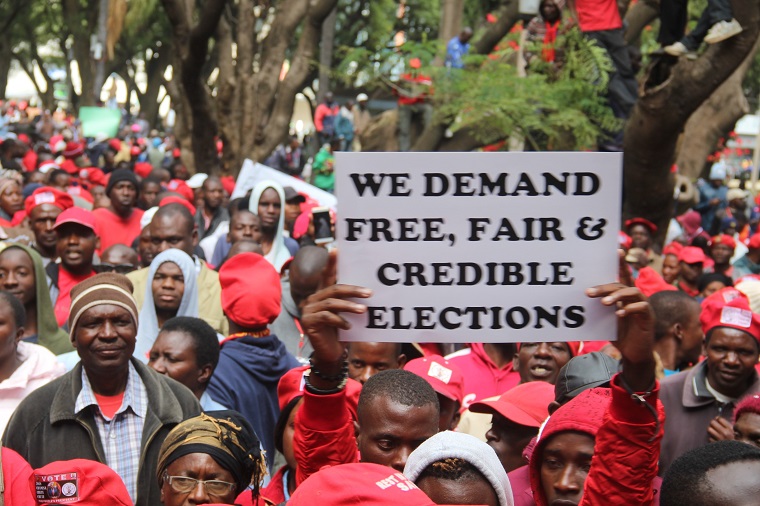ELECTION WATCH 39/2018
6th August 2018
Time Frame for a Presidential Challenge
In the early hours of the morning on 3rd August, the chairperson of the Zimbabwe Electoral Commission [ZEC] declared Mr Mnangagwa to have been duly elected as President of Zimbabwe. The MDC Alliance has said the result will be challenged in court.
This Election Watch outlines the time limits for bringing a challenge, the form the challenge might take and what remedies could be granted if it succeeds.
Time Limits for Challenge
According to section 93 of the Constitution, “any aggrieved candidate” may challenge the election of a President by bringing a petition or application to the Constitutional Court within seven days after the declaration of the results of the election. So Mr Chamisa and any other aggrieved candidates have until close of business on Friday 10th August to lodge their petitions or applications.
Note that under section 93 of the Constitution:
- only an unsuccessful candidate can bring a challenge.
- only the Constitutional Court can hear a challenge to a presidential election. The Electoral Court cannot do so.
Under rule 23 of the Constitutional Court Rules [SI 62/2016] the challenge must be served on the respondent [i.e. President Mnangagwa] within seven days after the declaration of the election result. So the time-limit for lodging the challenge and serving it on the respondent are the same in this case, Friday 10th August.
The respondent then has three days to file his notice of opposition with the Registrar and to serve it on the applicant. If he doesn’t he will be barred from taking any further part in the proceedings.
The applicant then has another three days to file an answering affidavit, if he wishes to do so, and file his heads of argument.
How Quickly must the Constitutional Court Hand Down its Decision?
After a challenge has been lodged and served, the Constitutional Court has just 14 days to hear and decide it [section 93(3) of the Constitution]. Its decision is final.
Constitutional Court’s Powers on Challenge
The Constitutional Court’s decision on a presidential election challenge can take any of the following forms [section 93(4) of the Constitution]:
- it can declare a winner, which means it can confirm ZEC’s declaration or declare another candidate the winner
- it can invalidate the election, in which case a fresh election must be held within 60 days – note this probably means a new election rather than a run-off, or
- it can make any other order it considers just and appropriate. This is very broad, and could cover:
* ordering a run-off election, if the court finds that none of the candidates in fact gained 50 per cent or more of the votes
* ordering a recount of the votes, if the applicant has asked for this.
Note: It is too late for the MDC to ask ZEC directly for a recount – this would have had to be done within 48 hours of the results being declared.
* making an order of costs
Note: security for the respondent’s costs in an amount of at least $500 must be provided by the applicant within seven days of lodging his petition [section 168(3) of the Act, as read with section 28 of the Electoral Regulations, 2005].
Continued next page
(434 VIEWS)


